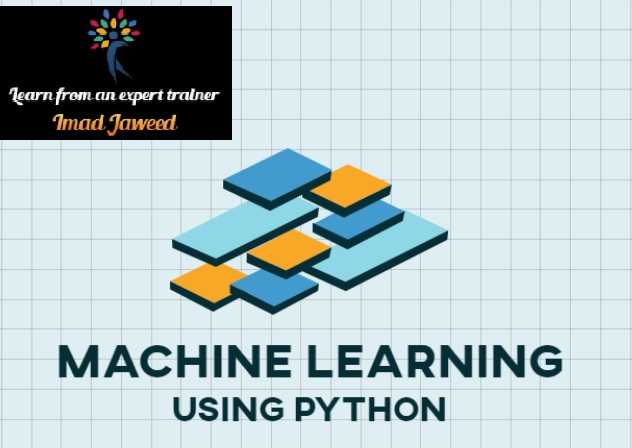Machine Learning using Python

In this course you will learn all the concept of Machine learning from basic to advanced level using Python programming. At the end of this course you will also understand how to build a recommendation system.
Machine Learning using Python
Machine Learning with Python Programming- syllabus
Introduction to Machine Learning
What is a Machine Learning?
Need for Machine Learning
Why & When to Make Machines Learn?
Challenges in Machines Learning
Application of Machine Learning
Types of Machine Learning
Types of Machine Learning
• Supervised learning
• Unsupervised learning
• Reinforcement learning
Difference between Supervised and Unsupervised learning
• Summary
Components of Python ML Ecosystem
Using Pre-packaged Python Distribution: Anaconda
Jupyter Notebook
NumPy
Pandas
Scikit-learn
Regression Analysis (Part-I)
Regression Analysis
Linear Regression
Examples on Linear Regression
scikit-learn library to implement simple linear regression
Regression Analysis (Part-II)
Multiple Linear Regression
Examples on Multiple Linear Regression
Polynomial Regression
Examples on Polynomial Regression
Classification (Part-I)
What is Classification
Classification Terminologies in Machine Learning
Types of Learner in Classification
Logistic Regression
Example on Logistic Regression
Classification (Part-II)
What is KNN?
How does the KNN algorithm work?
How do you decide the number of neighbors in KNN?
Implementation of KNN classifier
What is a Decision Tree?
Implementation of Decision Tree
SVM and its implementation
Clustering (Part-I)
What is Clustering?
Applications of Clustering
Clustering Algorithms
K-Means Clustering
How does K-Means Clustering work?
K-Means Clustering algorithm example
Clustering (Part-II)
Hierarchical Clustering
Agglomerative Hierarchical clustering and how does it work
Woking of Dendrogram in Hierarchical clustering
Implementation of Agglomerative Hierarchical Clustering
Association Rule Learning
Association Rule Learning
Apriori algorithm
Working of Apriori algorithm
Implementation of Apriori algorithm
Recommender Systems
Introduction to Recommender Systems
Content-based Filtering
How Content-based Filtering work
Collaborative Filtering
Implementation of Movie Recommender System
After the completion of this course, you will get the certification.
The market for Artificial Intelligence and Machine Learning is extremely hot right now. The demand for talented and skilled professionals in Machine Learning is at its peak now, and in the future, it will only escalate higher. The great thing about a Machine Learning career is that apart from job satisfaction and security, it also promises hefty annual compensation and fast career growth. All the more reason to consider building a Machine Learning career path.
2. Data Scientist
3. Software Developer/Engineer (AI/ML)
4. Human-Centered Machine Learning Designer
According to a 2019 Indeed report, Machine Learning Engineer is the #1 job in the list of The Best Jobs in the US, recording a whopping 344% growth with a median salary of $146,085 per year. In India, the national average salary for Machine Learning jobs is ₹11,05,748.








